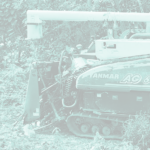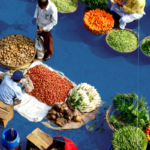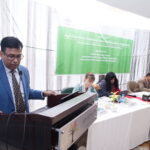Abstract/Description This report assesses Bangladesh's Phase III agricultural mechanization support program (2020–2024), examining the distribution, impacts, and governance of subsidies for agricultural machines—particularly combine harvesters (CHs). We analyze program effectiveness and identify critical implementation gaps using mixed-methods research combining administrative data analysis; a representative survey of 979 Machinery Service Providers (MSPs), including 400 CH MSPs […]
Policy dialogue on agricultural mechanization in Bangladesh: New research
November 25, 2025, Dhaka, Bangladesh – The International Food Policy Research Institute (IFPRI) and the Centro Internacional de Mejoramiento de Maíz y Trigo (CIMMYT), with support from CGIAR and the Gates Foundation, hosted the seminar “Agricultural Mechanization Policy Dialogue: Research Evidence and Stakeholder Perspectives,” at the auditorium of the Bangladesh Agricultural Research Council (BARC) in […]
Publication – Bridging norms and resources: Enhancing gender equality and adaptive capacities in Bangladesh’s climate-stricken agrifood systems
In September 2024, the CGIAR Gender Platform published the working paper, "Bridging norms and resources: Enhancing gender equality and adaptive capacities in Bangladesh’s climate-stricken agrifood systems." Abstract In the context of changing agrifood systems (AFS) and climate change, it is critical to uncover how gender equality and adaptive capacity within AFS can be simultaneously addressed. […]
Blog – Insights from TAFSSA’s Agrifood Systems Assessment in Bangladesh
Insights from TAFSSA's Agrifood Systems Assessment in Bangladesh By Archis Banerjee, Suman Chakrabarti, Aklima Parvin, Samuel Scott, Mahajabin Nur Khan, Esha Sarswat, and Julie Ghostlaw INTRODUCTION Food systems refer to the complex network of activities, processes, actors, and infrastructure involved from production through consumption of food. They intersect with every facet of our economy […]
Profitability in farming on the decline: study
Farmers are registering reduced profitability from paddy cultivation due to tightening of the rural labour market and declining real prices for the cereal grain, according to a joint study by two international research organisations. The study found that real agricultural wages have been rising gradually as people are moving out to non-farm sectors. Between 2011 […]
- 1
- 2
- 3
- 4
- Next Page »




